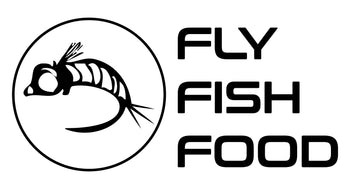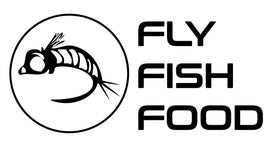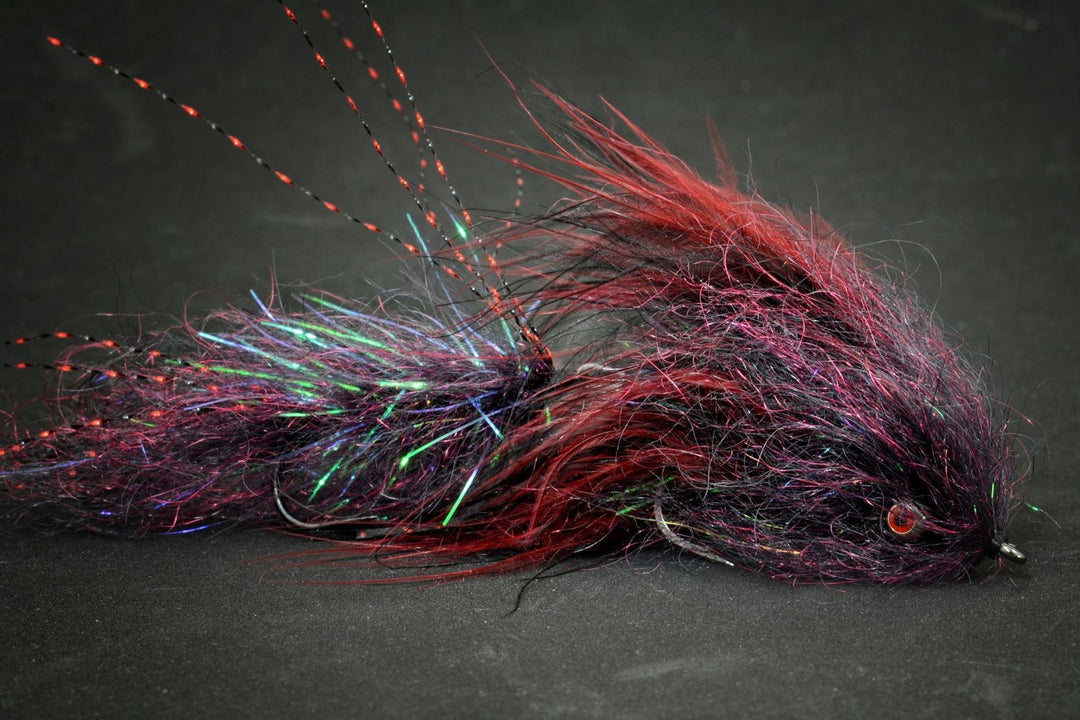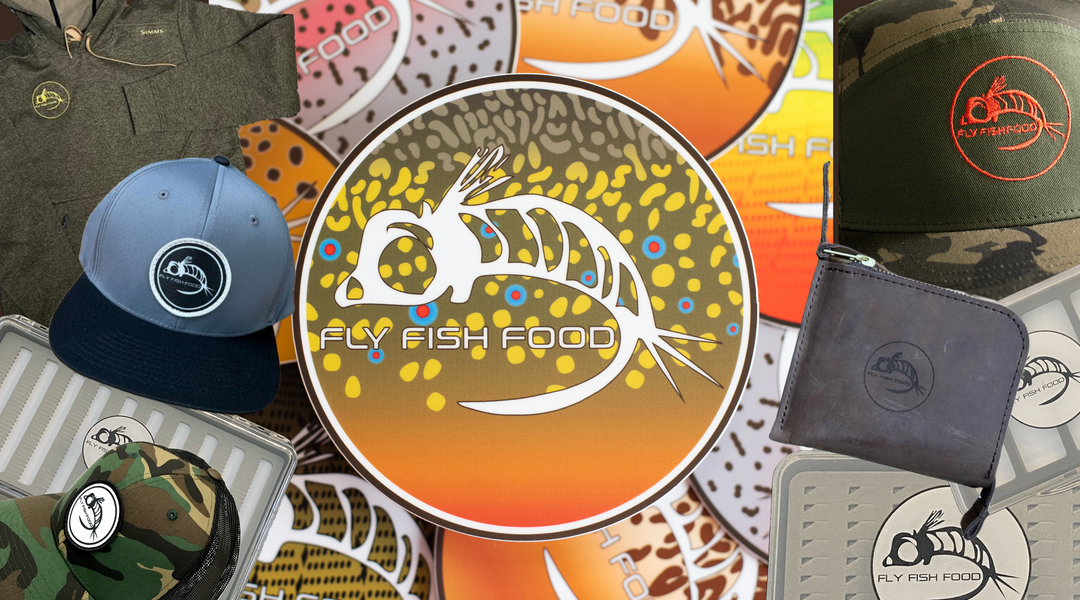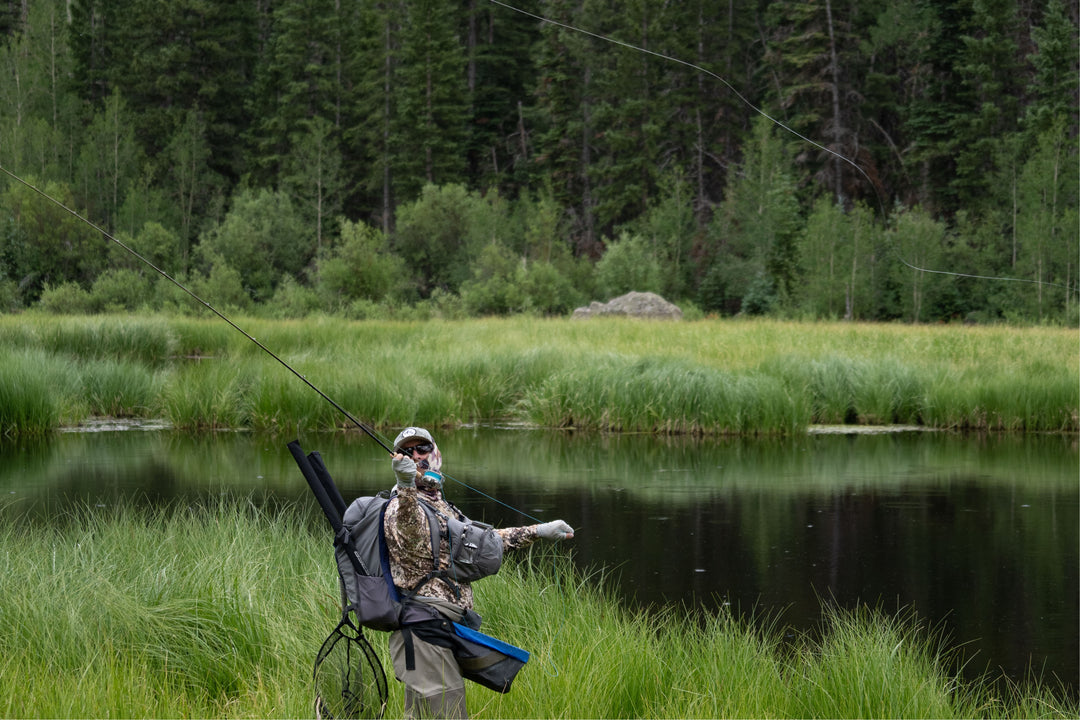Oregon ·
Deschutes River Fly Fishing Report - January 1/18/2026
DESCHUTES RIVER FLY FISHING REPORT
Central Oregon — Deschutes River System
Report Date: January 18, 2026 | Next Update: January 25, 2026
Current River Conditions
Important: The lower Deschutes (Pelton Dam to the northern boundary of the Warm Springs Reservation) remains closed for the season and will not reopen until spring. Check local closures before planning a float. Elsewhere in the basin expect winter conditions: cold water, variable flows, and pockets of turbidity on the lower river after recent runoff.
Flows & Clarity
Flow: generally variable — upper/canyon sections running lower but steady; lower sections may show elevated turbidity after recent runoff and dam releases.
Clarity: fair to stained in places below tributary confluences; clearer in sheltered upper runs and spring-fed sections.
Flow: generally variable — upper/canyon sections running lower but steady; lower sections may show elevated turbidity after recent runoff and dam releases.
Clarity: fair to stained in places below tributary confluences; clearer in sheltered upper runs and spring-fed sections.
Water Temperature
Current ranges: mid-30s–low 40s °F (2–6°C) in many reaches.
Fish are in winter lies — slow and low; expect less surface activity in the mornings.
Current ranges: mid-30s–low 40s °F (2–6°C) in many reaches.
Fish are in winter lies — slow and low; expect less surface activity in the mornings.
Weather Forecast
Cold mornings, afternoons moderating with sun breaks. Wind can increase mid-day in exposed canyons. Dress in layers; hypothermia risk with wet wading.
Cold mornings, afternoons moderating with sun breaks. Wind can increase mid-day in exposed canyons. Dress in layers; hypothermia risk with wet wading.
Access & Safety
Lower Deschutes closure in effect from Pelton to Warm Springs Reservation — do not plan floats through closed sections. Upper Deschutes, Fall River, Crooked and spring creeks remain good winter options. Always wear a PFD on rafts/rigs; cold-water rescue is difficult.
Lower Deschutes closure in effect from Pelton to Warm Springs Reservation — do not plan floats through closed sections. Upper Deschutes, Fall River, Crooked and spring creeks remain good winter options. Always wear a PFD on rafts/rigs; cold-water rescue is difficult.
What the Bugs Are Doing (mid‑January)
| Insect | Likely Activity | When to Fish |
|---|---|---|
| Midges | Primary winter food — emergers, pupae and adult midges across the day | All day; best in calm pockets and slow water |
| Baetis / BWOs | Light, sporadic afternoon duns/emerger activity where water temps are slightly warmer | Late morning to mid-afternoon on mild days |
| Caddis | Low, but occassional emergers near springs and slow backwaters | Midday to evening in calmer water |
| Stoneflies / Salmonflies | Not active — these are spring/summer insects; patterns used mainly as attractors or for planning ahead | Late spring — keep patterns ready for season change |
Recommended Tactics
- Winter strategy: nymphing and small jig techniques are the most consistent producers. Focus on deep tails of runs, seams, and pocket water near structure.
- Rig: Euro nymph or indicator rigs with tungsten bead head flies. Use 1–2 heavier flies (tungsten) and a lighter dropper if needed. Tippet: 5x–7x for selective fish; go thinner on clear days.
- Dry fly opportunity: mild afternoons can produce short BWO/baetis windows — be ready with tiny parachutes and emergers.
- Streamers & leeches: work deeper runs and undercut banks; slow strips and pauses imitate winter baitfish/leech activity.
- Safety: avoid wading in slick, fast water; always wear studs and a wading staff when necessary.
- Rig: Euro nymph or indicator rigs with tungsten bead head flies. Use 1–2 heavier flies (tungsten) and a lighter dropper if needed. Tippet: 5x–7x for selective fish; go thinner on clear days.
- Dry fly opportunity: mild afternoons can produce short BWO/baetis windows — be ready with tiny parachutes and emergers.
- Streamers & leeches: work deeper runs and undercut banks; slow strips and pauses imitate winter baitfish/leech activity.
- Safety: avoid wading in slick, fast water; always wear studs and a wading staff when necessary.
Fly Selections — Patterns to Pack
Below are practical, field‑tested patterns that match what trout are eating right now on the Deschutes. Links go to shop pages for quick ordering or pattern photos. I selected flies that perform in cold winter conditions: tungsten nymphs, jigs, small emergers and durable streamers.
Top Nymphs & Tungsten Jigs (primary winter weapons)
- Egan's Poacher - Olive — great as a jig-style nymph and anchor fly for euro setups.
- Egan's Poacher - Black — darker profile for stained water and low light.
- Egan's Thread Frenchie Jig - Olive — soft-hackle jig that fishes like an emerging mayfly/nymph.
- Tungsten Dart - Red — small, dense dart-style nymph for tight presentations in fast seams.
Dry Flies & Surface Options (for afternoon windows)
- Parachute - Blue Wing Olive — small BWO parachute for picky rises.
- Corn-fed Caddis (CDC) - Tan — excellent for the occasional caddis emergence and as a search fly in calm water.
- Parachute - March Brown — useful for larger mayfly windows or to imitate darker duns.
- Stealth Link Mercer - PMD — a fine emerger/dry for midday mayfly activity.
Emergers & Midges (small stuff that produces in winter)
- Barr's Flashback Emerger - BWO — go-to emerger when baetis trickles form.
- Black Zebra Midge (TBH) — essential for midge pupae and deep indicator rigs.
- Top Secret Midge — reliable tight-profile midge for picky conditions.
- Juju Baetis Tungsten — tungsten baetis nymph for indicator or dropper use.
Streamers, Sculpins & Leeches (for aggressive takes on winter trout)
- Coffey's CH Sparkle Minnow Sculpin — great for structure and deep runs.
- Sculpzilla - Olive — beefy sculpin imitation for big trout.
- Balanced Leech - Black — balanced leech for slow, deceptive presentations.
- Hot Head Mini Jig Leech - Black — a compact jigged leech for tight runs and drops.
Stonefly / Salmonfly & Big Nymphs (pack for spring transition)
- Tungsten Pat's Rubber Legs - Tan & Brown — a heavy stone/salmonfly nymph for spring runs.
- Craven's Two Bit Stone - Golden — golden stone imitation for bigger stonefly windows.
- Henry's Fork Foam Stone - Salmonfly — bulky foam pattern to test fish during big stone/salmonfly events.
- 20 Incher Tungsten — heavy anchor for high-energy nymph rigs and big-sibling stones.
How I’d Fish It (specific approaches)
| Time | Tactic |
|---|---|
| Morning | Swing heavy nymphs and jigs through the deeper runs and behind structure. Think Euro nymphing with a tight line and tungsten anchor; target seams and tailouts where trout conserve energy. |
| Midday | Work indicator rigs with a tungsten point fly and small dropper (midge or baetis) in softer water. Watch foam seams and seams near rock shadow-lines. |
| Afternoon | If a BWO or midge window opens, switch to a Parachute BWO or a small emerger. Fish calmly from bank or drift boat—long, gentle drifts win on clear days. |
| Streamer Time | Fish streamers in low light or right after a disturbance. Slow, methodical strips along deep undercuts and tailouts; pause and let the profile sink between strips. |
Where to Go Right Now
- Upper Deschutes (above Benham Falls): spring-fed pockets and tailouts — steadier clarity and safe wading in many spots.
- Fall River and spring creeks: consistent cold water and good winter holding water; great for precise nymphing.
- Crooked River tributaries and smaller canyon runs: good dry/dropper and sheltered streamer pockets on mild days.
- Lower Deschutes: DO NOT plan a float through the closed stretch from Pelton Dam north into the Reservation. Fishable sections exist below/above closures; confirm current boundaries first.
Quick Gear Checklist
Rods
4–6 weight for dries/nymphs; 6–7 weight for streamers.
4–6 weight for dries/nymphs; 6–7 weight for streamers.
Leaders & Tippet
9–12 ft leaders; 4x–7x tippet (go finer for clear water and picky fish).
9–12 ft leaders; 4x–7x tippet (go finer for clear water and picky fish).
Boating / Wading
PFD, wading staff, non‑slip studs, dry bag, warm layers.
PFD, wading staff, non‑slip studs, dry bag, warm layers.
Essential Flies
Tungsten jigs, small baetis emergers, zebra midges, small sculpin streamers, balanced leeches.
Tungsten jigs, small baetis emergers, zebra midges, small sculpin streamers, balanced leeches.
